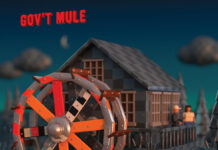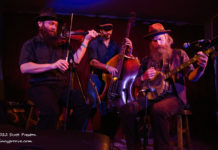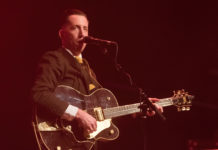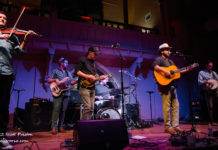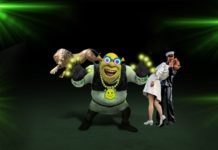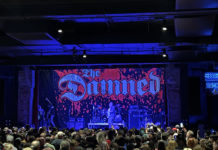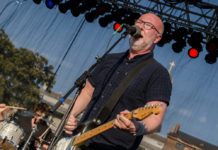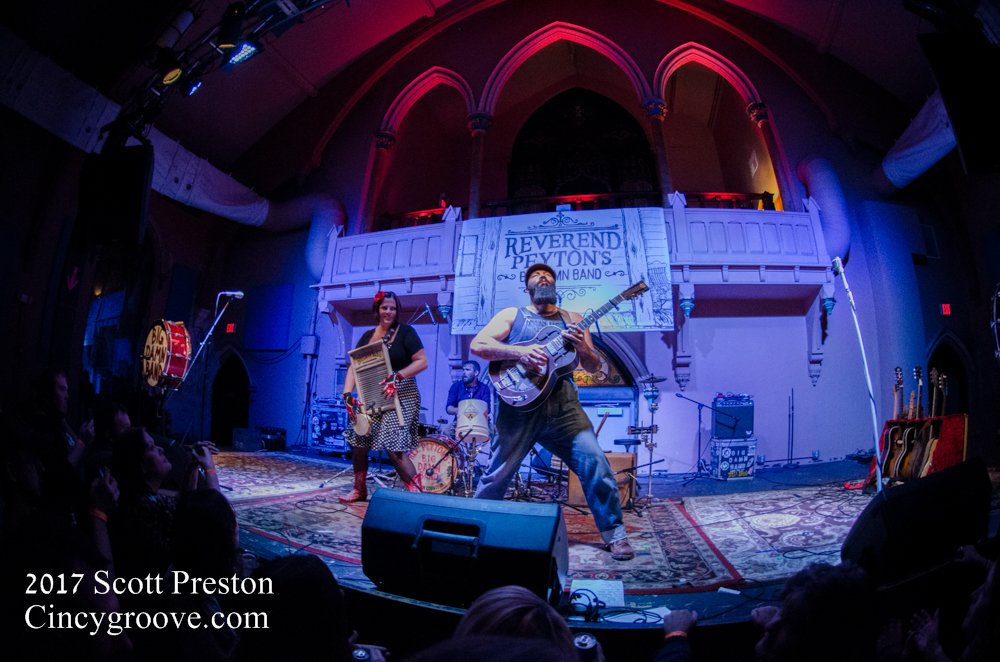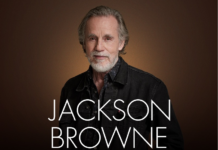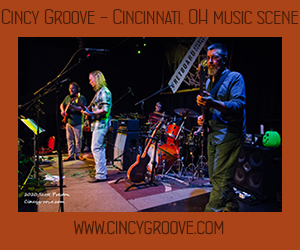Blues-folk icon Chris Smither has long been revered for both his guitar prowess and his way with a lyric, inspiring artists from Bonnie Raitt and John Mayall to Emmylou Harris andDiana Krall. He toured as one of the original monsters of folk with Dave Alvin, Tom Russell andRamblin’ Jack Elliott in 1998, and continues to live up to the title with accolades such as Mojo magazine’s five-star review for his 2012 release, Hundred Dollar Valentine. Smither still makes music and tours regularly; his April 2014 appearances at the revered New Orleans Jazz & Heritage Festival earned him a spot on Rolling Stone Senior Editor David Fricke’s Personal Top 10 list of best festival performances.
As Smither marks his 50th year of music-making in 2014, the New Orleans-raised troubadour takes a look back at his career with Still on the Levee, a two-CD retrospective releasing July 22 on Mighty Albert/Signature Sounds. He’s also releasing his full lyric collection as a book titled Chris Smither Lyrics 1966-2012, and in September, Signature Sounds will salute him with Link of Chain, a tribute album featuring contributions by Raitt, Loudon Wainwright III, Dave Alvin, Patty Larkin, Josh Ritter, Peter Case, Tim O’Brien and other friends and admirers from his beloved Boston music scene and beyond.
Reconnecting with his roots, Smither recorded Still on the Levee at New Orleans’ Music Shed with longtime producer David Goodrich. Their aim was to give fresh perspective to a selection of songs from his vast career — from “Devil Got Your Man,” his first composition, to recent originals. Among those who joined him on the project are famed pianist Allen Toussaint, members of the bandMorphine and fellow folk-Americana artists Wainwright, Kris Delmhorst and Rusty Belle. It’s also a family affair, with backing-vocal contributions by Smither’s sister, Catherine Norr, and fiddling by his daughter, Robin.
On his 16th album, Smither’s mellow, well-weathered tenor carries a mix of confidence, humility and humor. He’s aware, yet unafraid of his mortality, regarding the years gone by and the ones to come with the grace of a man who knows he can’t change the past or predict the future. His fingers remain as supple as his voice, effortlessly delivering the other half of his signature sound: the back-porch feel of intricate acoustic blues picking accompanied by his own boot-heel-on-wood rhythms.
It’s a sound that easily conjures the ghosts of Mississippi John Hurt and Lightnin’ Hopkins, artists who captivated him early on. Smither, the son of a Tulane University professor, first learned to play his mother’s ukulele, instructed by his Uncle Howard. “He told me if you knew three chords, you could play a lot of the songs you heard on the radio,” Smither recalls. “And if you knew four chords, you could pretty much rule the world.”
When he heard Hopkins and Hurt, his passion for the blues fully ignited. Even now, he claims his elemental style is “one-third John Hurt, one-third Lightnin’ Hopkins and one-third me.”
That’s the sound Raitt fell in love with when they met in the Cambridge folk scene; Smither headed there in 1965 after abandoning his college anthropology studies at the urging of early mentor Eric von Schmidt. Labeling Smither as “my Eric Clapton,” Raitt turned his “Love You Like A Man” into “Love Me Like A Man” and made it a signature song. Their friendship endures to this day; of course, she lends her version to the forthcoming tribute album.
Diana Krall, Esther Phillips, Rosalie Sorrels and John Mayall are among other artists who have covered his work; Emmylou Harris sang his “Slow Surprise” on The Horse Whisperer film soundtrack. Several of Smither’s songs have made their way onto large and small screens; one even inspired an entire film, The Ride, for which he provided the rest of the soundtrack as well.
Not that it’s always been smooth sailing for Smither. Like most creative souls, from his late friendTownes Van Zandt to inspirations such as Tims Hardin and Buckley, Smither battled his share of demons, from label woes to the liquid kind. After recording a couple of albums in the ’70s, he slowed his touring considerably.
In 1984 he returned to music full time, releasing his album It Ain’t Easy. A consistent string of acclaimed albums has followed, including 1993’s award-winning Happier Blue and 1997’s Small Revelations, which led to the Monsters of Folk tour.
Raitt joined Smither on 2003’s Train Home, duetting on his cover of Dylan’s “Desolation Row.” Another of the album’s tracks, “Seems So Real,” earned Smither a Song of the Year Award fromFolk Alliance International.
“Leave The Light On,” the title track from Smither’s 2006 CD, ends both Still on the Levee discs. A quietly extraordinary piece with accompaniment by Rusty Belle, the first version is a lilting, almost jaunty take. The second corrals the devastating power often hiding just beneath the surface of his songs. Over a slow electric groove, Smither delivers an aching duet with Kate Lorenz; his lines include this stanza:
I may live to be a hundred, I was born in ’44
31 to go, but I ain’t keepin’ score
I’ve been left for dead before, but I still fight on
Don’t wait up, leave the light on
I’ll be home soon.
The San Francisco Chronicle recently observed, “Smither continues to give ample proof that he’s matured into one of roots music’s most passionate, soulful songsmiths and interpreters.”
With Still on the Levee, that proof has become irrefutable.




